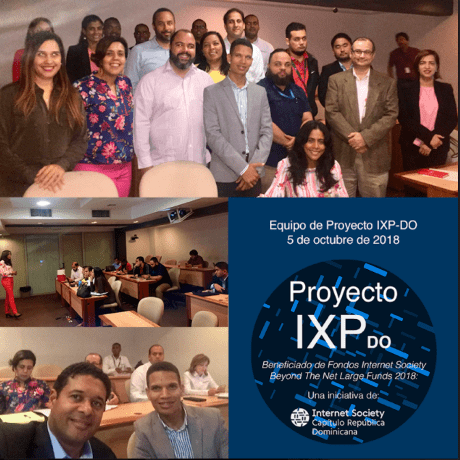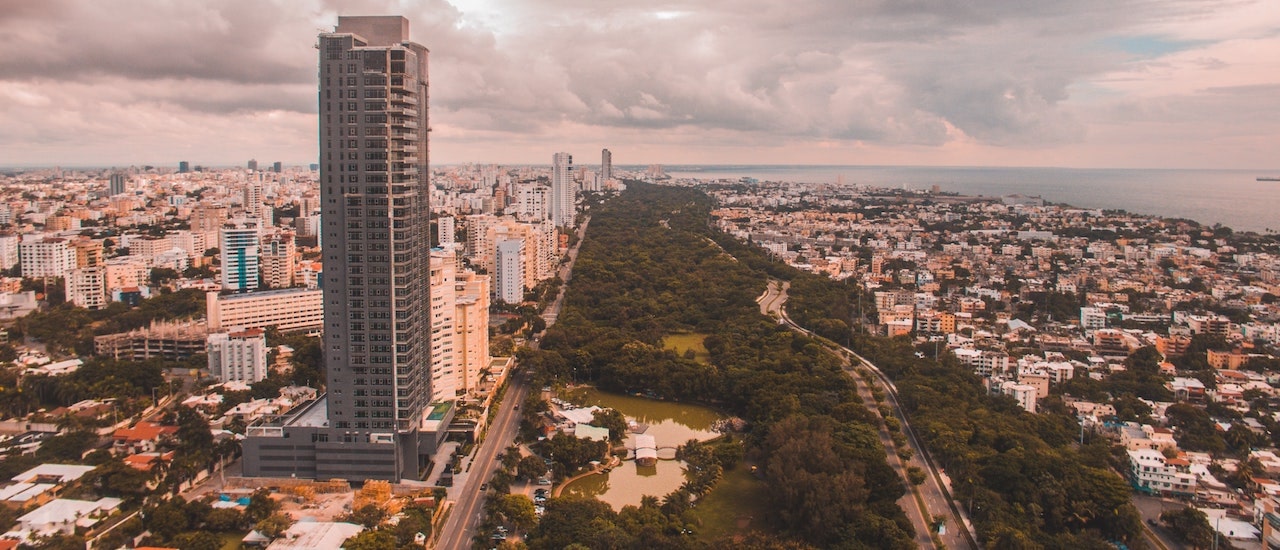The Dominican Republic’s new Internet Exchange Point (IXP) already has 24 members, three of which began exchanging traffic in November 2020. Another four will start this quarter – including the largest operators in the country.
The IX.DO was born after frustrated attempts. A government-led initiative in 2007 never became operational and the data center NAP del Caribe started pushing for the implementation of an IXP when it arrived in the country in 2008.
A decade later, in 2017, the Internet Society Dominican Republic Chapter reignited efforts after organizing a series of local Internet governance forums. They touched on the topic of infrastructure and included discussion panels on IXP best practices with experts from the Latin American and Caribbean Internet Address Registry (LACNIC). These were attended by regulators, telecommunications companies, and academics, who also reflected on the reasons why the previous IXP initiative had failed.

“There was strong interest in taking it up again, so [the Internet Society] led it,” says Osvaldo Larancuent, President of the Internet Society Dominican Republic Chapter. “In January 2018, we put out a call and started building a team. We decided to do it collaboratively and formed committees. There was a legal one, in which participants decided to work on a multilateral MoU [memorandum of understanding].”
At the same time, the Chapter applied for a Beyond the Net grant for medium or large-scale projects and was awarded US$30,000 in October of 2018.
“With the funds secured, and a formal MoU concluded, we convened the different stakeholders in November,” says Larancuent.
To date, 24 entities have signed the IXP’s participation agreement, including the Presidency of the Republic, eight providers and telecommunications companies that account for 98% of the country’s Internet consumption, two operators, and 12 universities, plus its host, NAP del Caribe.
María Waleska Álvarez is the Executive Director of NAP del Caribe, the neutral data center that houses the IX.DO. “We could be characterized as the airport for this traffic,” she explains. “We generate value for our clients. Because we have the IXP, we gain added value, becoming much more competitive, compared to other players in the market. It makes us more attractive.”

But Waleska Álvarez says the greatest benefit will be for end users. “It represents an opening of the market. With the IXP, more affordable and secure opportunities are created for emerging companies, dominant companies, and users.”
One of the greatest benefits of the IXP is that it allows a greater concentration of local traffic in the Dominican Republic – which means less reliance on international connections and lower operating costs for local telcos. It also means safer connections because local traffic stays within the country. And users ultimately get a higher-quality experience.
With increased local traffic through the IXP, the country will also become a strategic location for content providers.
IX.DO began silent production in November 2020, and three companies are already exchanging traffic (Columbos Wireless, OneMax, and GoldData), with several more in the process of connection. This quarter, the four remaining large providers (Claro, Altiz, Wintelecom, and Trilogy) will be connected.
“IXPs create the fundamental infrastructure to improve data transmission. In tests, we saw our exchange times decreased from 20 milliseconds to 0.9 milliseconds,” says Larancuent. “For normal users, this means their face looks less grainy or roboticized on screen. The user has a better experience because there is more internal speed.”
According to Larancuent, in the first months of the pandemic, Internet consumption rose by 30% in the country. “Although we have good mobile Internet coverage, estimated at 87.66% – according to the regulator (INDOTEL) and the National ICT Observatory (ONTIC) of the Technological Institute of Santo Domingo (INTEC)… there are weaknesses in household broadband connections, which are estimated at only 11.53%, and there is a lack of computers in homes. All of this affects the ability to transmit educational contents remotely, which has been done via television amid COVID-19.”
Larancuent says the government has made tremendous efforts to make the Internet affordable, reaching agreements with Internet service providers to lower data costs for customers, especially for the poor, while exploring other options to strengthen Internet resilience and improve on the quality and cost of services. However, he says the pandemic has exposed the weaknesses of a model based on Wi-Fi access in governmental and public sites.
Recently, the government published Decree 71-21, forming the Presidential Office for the Digital Transformation of the Dominican Republic, which will include a Working Group on Connectivity, Access, and Broadband Plans. The Internet Society Chapter will participate as a permanent member of the Working Group, to collaborate in its design and implementation.
Larancuent says that IXPs have four main advantages. “The first is efficiency, because local traffic is concentrated and doesn’t have to search for an international signal. This saves the cost of submarine transmission. The second element that will improve is international services (Google, Amazon, Netflix, etc.). If they have a presence here, users will be able to access them without delays. This will also reduce the congestion and saturation of Internet lines.”
According to Larancuent, three CDNs have already asked to join IX.DO – Google Cache, Amazon World Service, and Facebook has expressed interest. The board has also reached out to Microsoft and Netflix.
“The third benefit of IXPs,” he continues, “is that they encourage companies that develop content to leave it here. This drives local digital transformation because more local companies will be able to provide services – especially the banking, health, media, finance, education, and justice sectors – and store their content on local servers.”
“Last but not least, are the benefits of structuring an integrated local digital ecosystem, which adopts best practices for the safe management of the network (such as the MANRS standard for safe routing), which develops its capabilities by maximizing local Internet capabilities.”
The $30,000 grant from the Internet Society covered the initial technical equipment and infrastructure, such as the route server, computers and servers, the contracting of partner services, installation and training, as well as the hiring of a project manager. But Larancuent estimates the total cost of the project at around $50,000, which includes several separate in-kind and one-off donations of servers and equipment that has allowed them to finally take off.
Image by Asael Peña via Unsplash

